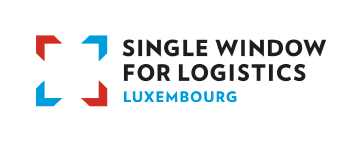When a company imports, exports or places goods in a suspensive customs procedure in Luxembourg, it must file a customs declaration with the Customs and Excise Administration.
Customs declarations prior to importing or exporting must also be filed, for security purposes.
Declarations for excise products must also be filed with the Customs and Excise Administration, following other specific procedures.

Form and content of customs declarations
The form and content of customs declarations must comply with the Union Customs Code. All customs declarations must:
- be established using the Single Administrative Document (SAD), a format that is used to harmonize and standardize customs data
- include all data specified by a European regulation, according to the nature of the customs declaration
- be filed in a computer format using either the Import/export eDouane system or the ICS eDouane system.
Accompanying documents must be in possession of the declarant and available for the Customs Administration in order to establish, as the case may be, the nature, the value, or even the origin of the goods so that the Customs and Excise Administration can carry out its controls.
In some circumstances, companies can benefit from customs simplifications for the establishment and filing of their customs declarations.
In practice, an operator can only have disposition of its customs-declared goods after receiving "clearance" from the Customs Administration. Clearance is obtained once the Customs Administration has finished the customs control on the goods, or has made the decision to not perform any customs control.
Pre-arrival/pre-departure declarations
To secure the international supply chain, concerned operators must file pre-arrival/pre-departure declarations. The Customs Administration carries out a computerized risk analysis based on the data thus received. Goods deemed at risk are subject to customs control for safety and security purposes upon their arrival or prior to their departure.
At entry into the European Union (EU), Entry Summary Declarations (ENS) shall in principle be filed by carriers.
At export/exit from the EU, Exit Summary Declarations (EXS) shall in principle be filed by the exporter or their carrier. In practice, the export declaration is most often used as an EXS declaration.
Authorized Economic Operators (AEO) F and S are allowed to file their ENS and EXS customs declarations with reduced data.
The main customs declarations
The following table summarizes the main customs declarations, associated with the system to use:
Event |
Type OF declaration |
System |
|---|---|---|
Arrival of non Union-goods in the customs territory of the European Union (EU) |
Entry Summary Declaration |
ICS eDouane |
Placing of non-Union goods in a temporary warehouse |
Declaration of temporary storage |
|
Placing of non-Union goods in a customs warehouse |
Declaration of storage in a customs warehouse |
Import/export eDouane |
Placing of non-Union goods in a free zone |
N/A |
|
Placing of non-Union goods in inward processing |
Declaration of inward processin |
Import/export eDouane |
Placing of non-Union goods in temporary admission |
Declaration of temporary admission |
Import/export eDouane |
Or ATA carnet |
||
Transport in transit |
Declaration of transit |
Import/export eDouane (NSTI, NCTS) |
Or TIR carnet |
||
Import of non-Union goods |
Declaration of release for free circulation |
Import/export eDouane |
Export of Union goods |
Declaration of final export |
Import/export eDouane |
Declaration of temporary export |
Import/export eDouane |
|
Or ATA carnet |
||
| Re-export of non-Union goods | Declaration of re-export | Import/export eDouane |
Related products
The customs declaration is valid for any type of product.
Related procedures
Customs declaration procedures are detailed on the Guichet.lu website:
Related organizations
Customs declarations and pre-arrival/departure declarations must be provided to the Customs and Excise Administration.
The person who must declare the goods to customs is the declarant. This is usually the owner of the goods. The declarant may choose to be represented to customs by a customs representative.
The customs representative files the customs declaration in their own name but on behalf of the declarant ("indirect" representation). The customs representative and the declarant are jointly responsible for paying the customs debt.
Note: "direct" representation allows the customs representative to file customs declarations in the name of and on behalf of the declarant established in the European Union. The declarant alone is responsible for paying the customs debt.

